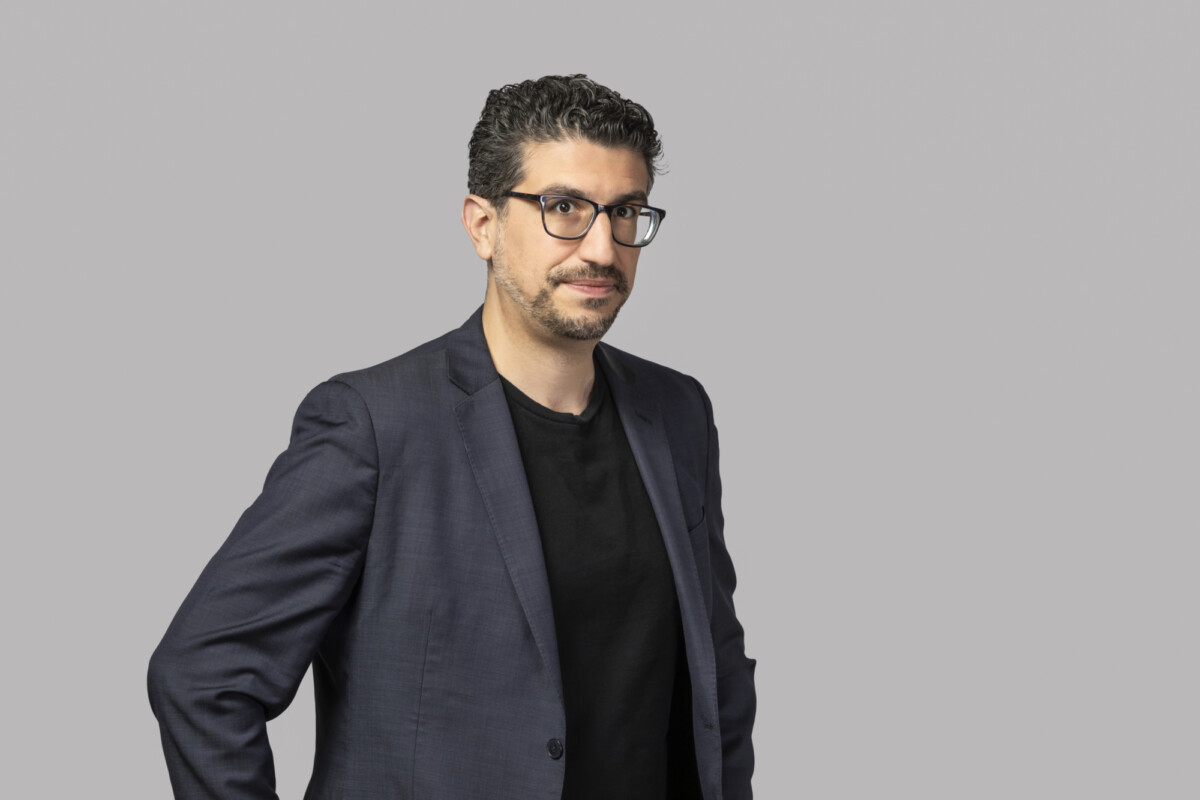Estate Planning
Oct 27, 2025
Introducing Empathy to Estate Bureaucracy
ClearEstate’s origin story: how grief, inefficiency, and compassion inspired Alex to build a fintech that brings empathy and efficiency to estate planning and settlement
ClearEstate’s CEO shares lessons from settling thousands of estates and redefining estate planning with empathy, innovation, and professional executorship


Five years ago, we launched what I consider to be Canada's most ambitious financial technology endeavor.
Being the CEO of a startup is actually quite hard. It may be the hardest thing I’ve had to do.
Being the CEO of this fintech startup, tackling some of the most complex, cruel bureaucracies ever devised by humans, has built in me a sort of psychological resilience that would have surprised my younger self.
There are the usual ups and downs in the journey of a new business, especially one that is backed by serious institutional partners, but the unique pressures of estate management became obvious quickly. First and foremost, there is helping clients cope with the death of a loved one; there are daily financial doom and gloom scenarios to overcome; and there are the unforeseen tragedies, when families are torn apart because of estate settlement conflicts, often the product of incomplete planning.
With experience, our team has become more zen, more confidently managing unpredictable family dynamics while remaining focused on the core mission: Disrupting both estate planning and settlement. To do so, we’ve had to work backwards and start at the end…
Estate planning is important for all adults. Rethinking the estate settlement model is a much more ambitious disruption that is arguably centuries overdue.
We’ve probably all read classic literature that features sordid tales of sibling rivalry or contentious litigation in the wake of the death of a head of the family. In The Adventure of the Norwood Builder, Sherlock Holmes investigates a young executor after a suspicious death and contested will; Charles Dickens pushed the theme further in Bleak House, rumoured to have drawn on on the real Thellusson v. Woodford estate case that was litigated for over 60 years; and in Agatha Christie’s After the Funeral, the simple act of reading a will sets off murder and mistrust, with the executor caught at the centre of family turmoil, until Inspector Hercule Poirot uncovers the truth.
In these mysteries, it is the executor that is most often cast in suspicious roles, precisely because they control access to wealth. Yet in the end, these characters are vindicated and tend to serve as narrative red herrings rather than villains (or, for me, procedural scapegoats, symbols of institutional malaise).
We read about these chaotic scenarios and see them played out in film or TV dramas like Yellowstone or Succession, but living it, accompanying people through these conflicts, is something else.
Our 2022 poll on estate issues, conducted by Maru Public Opinion, offered some interesting insights, including that over half of all executors surveyed say the process of settling a loved one’s estate was one of the most difficult challenges of their entire lives; yet 90% of people with wills have appointed family members to act as executor.
The challenges of estate settlement are so longstanding that they have become lore but governments and large institutions have not heeded the warnings. About half of adults, depending on the jurisdiction, still don’t have a will or any semblance of an estate plan.
After five years, I am still surprised by the fact that nearly all estate-related service offerings are not designed for middle income families, for the majority of the population, and certainly not for those with below-average incomes. Expert advice in this space, both on the planning and settlement side, is not readily available.
The services that are available to most people are then fragmented between various professional services offices, not to mention the absence of digital asset portals for both executors and beneficiaries to stay informed throughout the process. After half a decade of my professional life in this space, it’s only become more obvious that the system remains broken for most families—and there is ultimately only one way around this historic injustice.
Though we launched ClearEstate to first and foremost accompany executors through daunting estate settlement bureaucracies, over the years, we grew more bullish on one specific service that provides the most relief: the professional executor.
On a regular basis, we meet with families who still don’t know this role exists. You don’t have to burden a grieving family member or other loved one with a minimum of 18 months of paperwork; a professional executor can be given power of attorney (POA) to complete virtually all of these tasks, allowing beneficiaries to focus on healing.
In our first year, we viewed the professional executor as a luxury of sorts, an upgrade. Today, we’re really seeing this pool of professionals as one that should be widely accessible.
It should be common practice to appoint an organization that actually does professional executor work day in and day out, rather than taking a chance on either the most reliable and willing family member, or a financial professional in a related industry that spends most of their time doing other things. You may have full confidence in your local law or accounting office but the person you trust at that office may not outlive you.
ClearEstate is being built as a complete estate planning and settlement solution for the 22nd century, that is to say one that will outlive us all.
We’ve now settled thousands of estates and are more convinced than ever that democratizing estate settlement including professional executorship is the solution to these old problems.
I wonder if even ten years ago, the financial markets would have been ready for this product. But recent events globally have not only hardened my perspective, but hardened us all. As we all survived the pandemic, a certain cultural zeitgeist shifted, from resilience to empathy. This is part of the real insight that our technology has inspired in us, the ability to create a transparent estate management system that manifestly fosters an empathetic, transparent ecosystem in the wake of a loved one’s death.
We are fundamentally changing estate planning and settlement for the better. All of a sudden, executors and beneficiaries don’t have the same worries their predecessors had for centuries. There is some initial coordination, a few calls and signatures… and then, the client can take care of themselves and other loved ones.
The learning has been so much deeper than we ever could have imagined five years ago. We had our eyes on myriad efficiencies—wills, probate, asset management, etc.—but with time and experience, we are becoming more determined about scaling permanent solutions. The demand for solutions we’ve found to be enormous, and we’ll be pursuing a parallel education mission to ensure families are better informed and prepared for these inevitable rites of passage.
After some reflection, it has become easier working around death. Grief is inescapable and we can’t help with that. Bureaucracies, though, can and will be made more efficient and compassionate for those grieving.